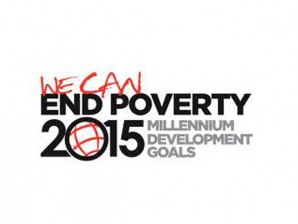PH falls short of attaining MDG in education, health, equality—civil society group

Leonor Magtolis-Briones, lead convenor of Social Watch Philippines, explained to members of the House of Representatives how far President Benigno Aquino III has so far taken his “matuwid na daan” and what the government would need to address as the MDGs draw to a close by 2015.
The assessment Briones made was part of Social Watch Philippines’ report entitled “Breaking Through to Sustainability”, copies of which were furnished the House of Representatives on Wednesday.
The country still had a lot to do in terms of providing universal primary education with some schools in far-flung areas operating without computers and adequate school buildings, the report said.
Maternal health and the rising cases of HIV-AIDS were also something that the government had yet to effectively address, said Briones. She lamented that health might not be considered as important as education “because health is only number 7 in our budget, even as we are happy that education is number 1.”
She said that poverty, hunger and unemployment continued to be challenging issues for the government this year, as growth did not necessarily equate to better living standards for all Filipinos. The country, she said, suffered from decades of corruption and impunity.
Article continues after this advertisementBriones expressed concern over the Conditional Cash Transfer program which may not necessarily be reaching all of the poor, especially with the elections in May.
Article continues after this advertisementBut National Economic Development Authority director general Arsenio Balisacan dismissed fears that the CCT funds would be used for the elections saying “as you may know, the bulk of the expenditures occurred in 2011 and 2012–not election years.”
Aquino was “doing well overall but others say that it is inadequate. We are calling for a change in development strategy,” said Briones, pointing out that despite the growth being monitored the Philippines’ economy needs to be inclusive.
Deputy Speaker Lorenzo Tanada III said that the government was exerting efforts to be on track in achieving the MDGs but “some seem to be far from reach.”
“We need to accelerate, catch up,” Brion said, explaining that the government had to create more jobs and consider alternative learning systems for those who have been left behind by the education system. “What do we do about the 40-50 year-olds who are still in Grade 2?” she asked.
Inequality was also still a problem, said Briones, explaining that a person could be in a developed area and still “five minutes away, you see that it is a different story. Growth increases inequality.”
The report said “growth benefited a few and excluded so many, thereby widening the rich-poor gap even more.”
Tanada lamented that “rising inequality undermines the progress of the MDGs… the poorest areas are bypassed… harder to reach, giving their poverty an enduring quality.”
Social Watch Philippines co-convenor and author of the said report, Isagani Serrano said that inequality created more problems and urged the government to improve its strategies. “I am not saying that we stop chasing growth but to look at it as a means to happiness. We cannot be happy with three out of ten Filipinos feeling hurt and unhappy.”
Although admitting that inequality was a big challenge for the government, Balisacan said that in studying the relationship between growth and inequality “there’s no country I know that has arrested poverty without growth. We need growth.”
“What is true is that some countries can better use growth to generate employment and access opportunities like health and employment. The question now is how to make growth more inclusive,” said the NEDA official.
He said that the government was working to attract more investments to create more opportunities and ensure that the government can see to the needs of victims of environmental disasters. Balisacan said he remained optimistic that the country will be able to reach the MDGs.
“Good governance is a value in itself but does not guarantee sustainable development. Breaking through to sustainability means making MDG history, reducing inequality, respecting limits to growth, enlarging rights and freedoms,” said Serrano.
But the civil society group is urging the government to improve its strategies for developing the country way past the MDGs.
“The MDGs are not enough. It is not enough to say that we have reduced 50 percent of poverty–you still have the other percentage,” Briones said.